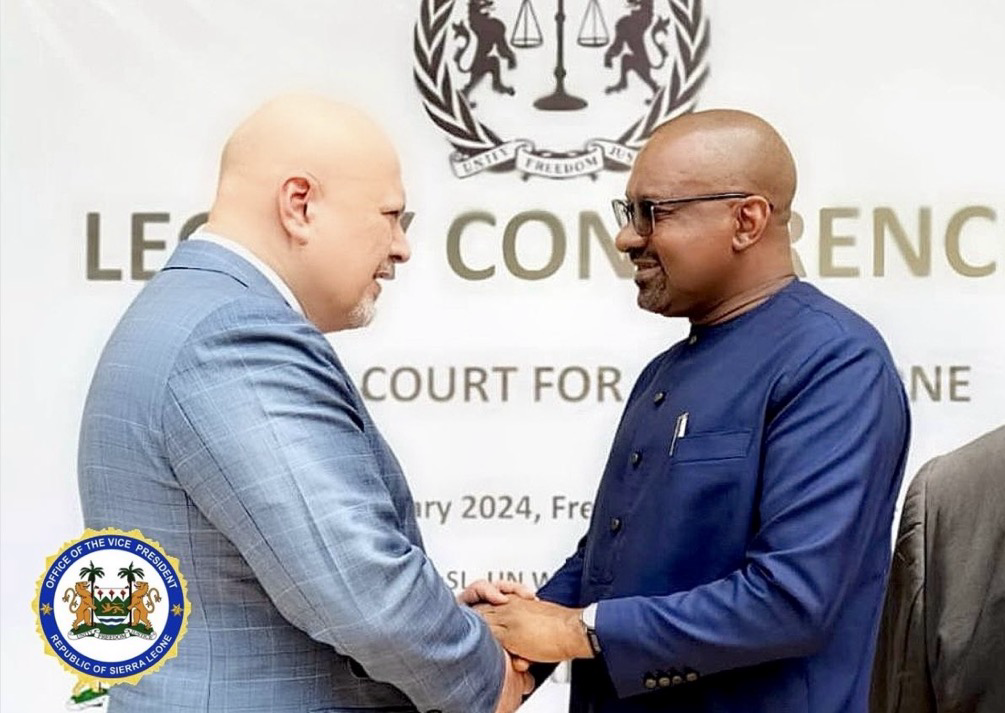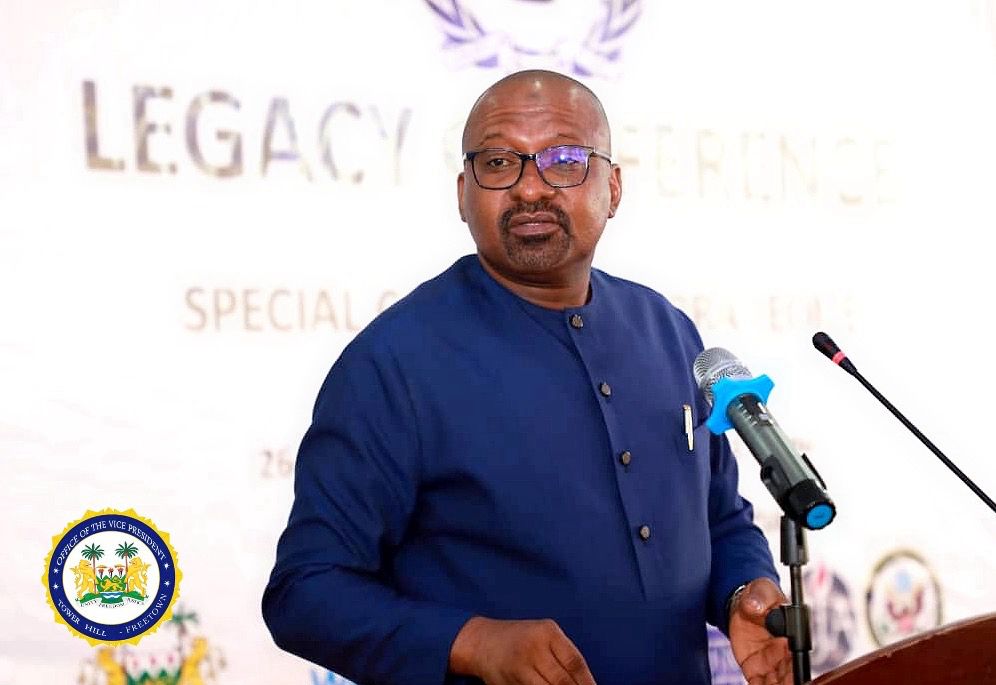By Shadrach Aziz Kamara
The Residual Special Court for Sierra Leone (RSCSL) recently wrapped up a two-day Legacy Conference with the theme “Raising Awareness of the Special Court for Sierra Leone in International Justice, Peace, and Security.”
A wide range of people attended the event, which was hosted at the Bintumani Conference Centre in Freetown. These included academics from universities, representatives from NGOs, international experts, legal experts, war victims, and leaders of Communities.
During the conference, the Vice President of the RSCSL, Justice Emmanuel Ekundayo Roberts, emphasised the importance of the Special Court’s legacy in promoting justice, accountability, and peace. He emphasised how the court combats impunity and has significantly advanced global jurisprudence. Justice Roberts also emphasised the Residual Special Court’s efforts to preserve the original court’s legacy and its impact on transitional justice around the world.
According to Special Prosecutor Officer Justice Ekertarina Trenda-filova, the Special Court has made major contributions to international justice, particularly in addressing gender-based issues and holding those accountable for horrific crimes. She emphasised how the court can influence public perception of heads of state immunity and how this will impact future international accountability initiatives.

International Criminal Court (ICC), Karim A.A. Khan and Dr Mohamed Juldeh Jalloh, Vice President of Sierra Leone
Prosecutor for the International Criminal Court (ICC), Karim A.A. Khan, expressed gratitude to Sierra Leoneans for their hospitality and emphasised the importance of national legal systems. When there were no miscarriage complaints, he talked about the court’s successes in administering justice and its impact on the International Criminal Court’s protocols. Khan emphasised that upholding the fundamentals of justice should never be compromised.
The UN Office of Legal Affairs’ Assistant Secretary General, Stephen Mathias, gave a historical overview of the Special Court’s founding and distinctive hybrid structure. By emphasising the Residual Court’s focus on gender issues and its regional approach to justice, he emphasised the importance of supporting the court in maintaining its traditions.
Dr. Mohamed Juldeh Jalloh, Vice President of Sierra Leone, recognised the Special Court’s contribution to advancing justice, peacemaking, and harmony following the nation’s civil war. He lauded the court’s influence on the establishment of post-conflict national institutions, human capital development, and legal procedures. Jalloh declared plans to turn the former Special Court into a Justice Sector Complex while urging a renewed dedication to accountability and the rule of law.
Along with panel discussions on transitional justice and the legacy of the Special Court, the conference included contributions from the Chief Justice, the British High Commissioner, and members of civil society.
The Legacy Conference provided a forum for considering the accomplishments of the Special Court, talking about its long-term influence on global justice, and emphasising how crucial it is to preserve accountability and the rule of law. After the event, participants were even more determined to advance national unity and stability, realising the critical role the Special Court had played in determining Sierra Leone’s post-conflict development.
